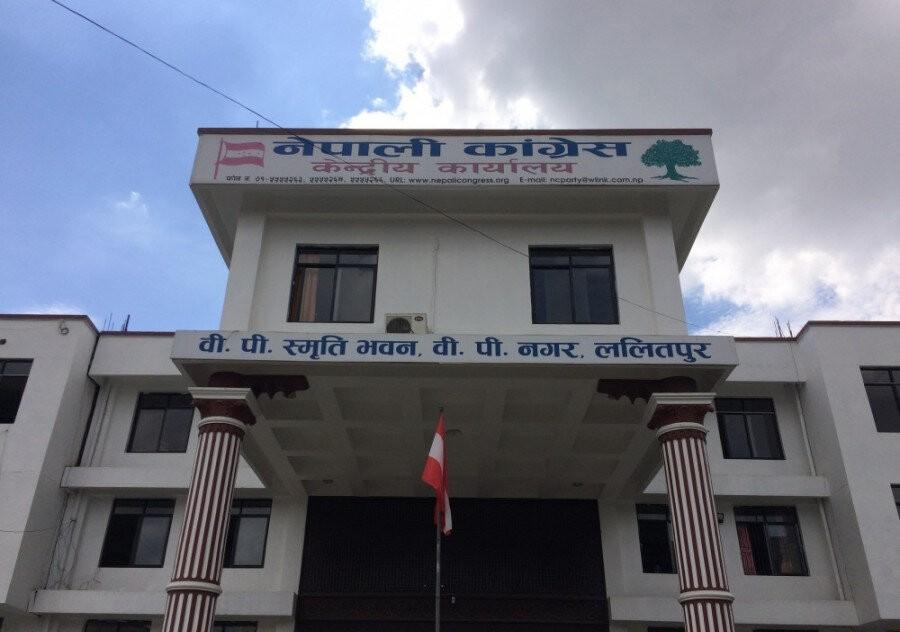
Politics
Found 1 news

Congress’ 100-day campaign: Leaders advised to walk the talk, shun groupism
The Nepali Congress is holding a ‘100-day campaign’ to rejuvenate party committees, strengthen the bond between the party's local representatives and central leaders, and pacify the party's dissenters. The party’s central committee meeting, which concluded on September 1, decided to run the 100-day campaign from September 23 to December 31. Krishna Prasad Paudel, chief secretary at the party office, says many central leaders have already reached the districts they are assigned to run campaign activities. According to Paudel, the party’s seven joint general secretaries lead the campaign in the seven provinces. Senior leaders Krishna Sitaula, Shashank Koirala, Bimalendra Nidhi, and Bijaya Kumar Gachhadar, along with some central committee leaders, have either reached the assigned districts or are on the way, Paudel said. “When the party’s senior leaders and central committee members are in their districts, vice presidents and general secretaries of the party will monitor the campaign activities,” Paudel told the Post. “If necessary, the vice presidents, the general secretaries, and the party president will go to some districts.” One of the main objectives of the campaign is to renew party membership. “We claim our party has 0.9 million members,” Paudel said. “During the campaign, leaders will check the trend of party members renewing their membership.” The campaign has been launched at a time when leaders have already started to devise their plans for the next general convention. As per the Congress statute, the party must hold its general convention every four years. The party’s 14th general convention was held in December 2021. If the statute is followed, the party’s next convention should be convened by the end of 2025. Some Congress leaders have floated the proposal of contesting the next general election on its own, without forging electoral alliance with other parties. General Secretary Gagan Thapa floated a proposal to this effect at the Mahasamiti meeting in February that forwarded the proposal to the central committee to take a decision on the issue. “If we are to fight elections on our own [without an alliance], we need a strong organisation, therefore the party is emphasising strengthening the party by conducting campaigns,” Paudel told the Post. But, for the party leaders, success of the campaign will largely depend on the way it will be run. “Will the party leaders try to connect the party organisation to the public or will they conduct it in just a traditional manner? This will determine the success of the campaign,” Guru Ghimire, a Congress leader, told the Post. Ghimire suggested that the party leaders should also gauge the strengths and weaknesses of other parties in the districts. Ghimire also advised the leaders not to use the campaign as an opportunity to promote factional activities. When public disenchantment towards the major parties is growing fast, the campaign the Congress has decided to carry forward could be a means to connect the leaders with the public, says a Congress leader. “This campaign will re-energise the relations between the party and the public, and the party should work hard to make this event fruitful without baggage of internal factions,” Sanjay Kumar Gautam, a Congress lawmaker, told the Post. Reconnecting with the public is a compulsion for the political parties, say political experts. Soon after the November 2022 election, major political parties including the Congress held several campaigns to reconnect with the people but the masses may not be quite impressed by the leaders’ announcements they make during the rallies unless they deliver when in power. Earlier, the CPN-UML carried out various drives such as ‘mission grassroots’, a march along Mid-Hill Highway. “Political parties’ efforts to get connected with the people is something commendable in itself,” Geja Sharma Wagle, a political analyst close to the Congress, told the Post. “But, if the political parties don’t deliver while they are in government, people might not be convinced by their pledges.” Wagle adds that as the Congress is in government, people take the leaders’ speeches seriously only if they work for them sincerely. During the 100-day campaign, the party has decided to inform the party members and local leaders regarding the seven-point agreement reached between the Congress and the CPN-UML on July 1. Based on the same agreement, the two parties formed the coalition government led by UML chair KP Sharma Oli on July 15. As per the deal, Oli will hand over the government leadership to Congress President Sher Bahadur Deuba after two years. Besides their power-sharing in the federal government, the Congress and the UML have shared powers in provincial governments as well. While Koshi, Lumbini and Karnali provincial governments are led by the UML, Congress provincial lawmakers head Bagmati, Gandaki, and Sudurpaschim governments. The two big parties have backed Janamat Party to head the provincial government in Madhesh. During a meeting of the coalition partners held in Singha Durbar on September 9, Prime Minister Oli had reportedly complained that the coalition partners did not work enough to counter the ‘disinformation campaign of the opposition parties’ against the Oli government. “The opposition has spread confusion about the government, but the parties in government have not shown any interest in countering the disinformation,” the prime minister had reportedly said at the meeting. “All the ruling partners should defend the government.” Congress leaders will inform the party’s district representatives about the spirit of collaboration with the UML, constitutional amendments, and other issues. They are also responsible for informing the party members at the grassroots about policies such as the common minimum programme. Earlier this month, the Congress-UML coalition brought the programme that has, among other things, reiterated its commitment to reviewing the achievements made and weaknesses observed in the course of implementing the constitution in the past nine years.
Politics